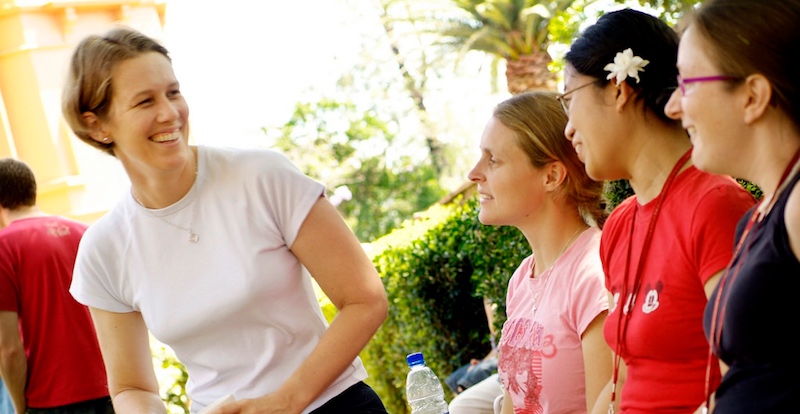Opinion: Proselytizing on campus should be more controversial
As a Jew, I know I feel differently than many non-Jews when it comes to the issue of proselytism — or attempting to convert someone from one religion or belief to another. It used to register as nothing more than background noise when I was younger. However, attending a university has forced it sharply into focus. It is harder to tune that noise out when it is being aimed directly at you. After numerous run-ins with attempted proselytizing, I was forced to ask myself a question: Why is proselytizing on campus not more controversial than it currently is?
I’d like to first clarify that I am not writing this to discuss the struggle between freedom of speech and the separation of church and state. I’m more worried with the insensitivity of proselytizing, the methods used and the implications therein. Insinuating that your beliefs are insufficient, which is inherently at the root of proselytizing, is innately demeaning.
My first confrontation with proselytizing was back at Bellevue College, where a club intentionally lied about being a Christian witnessing program in order to trick other students into converting. It left a bad taste in my mouth, and I avoided student clubs from that point on. At Bellevue College, there had also been groups who came in, preaching and yelling that members of the LGBTQ organization would burn in hell. Despite being clear examples of harassment and inflammatory speech, nothing was done to remedy the situation.
I had hoped my luck would turn once I got to UW Tacoma. However, it quickly devolved into much of the same. At one point, I stopped wearing my yarmulke to avoid the situations. I had proselytizers approach me, then pester me, trying to pressure me into attending conversion meetings.
Now, none of what I’ve said was written to complain about Christians or other faiths at large, nor my undergraduate experiences. However, I feel like the issue of proselytizing is vastly overlooked. It isn’t always just a nuisance. It can be stressful to deal with. Students shouldn’t have to mask their religious identities just to avoid harassment. Often, proselytizing becomes so commonplace that people just keep walking, not even consciously recognizing that it is occurring. However, it is a real issue which should be seen as far more controversial than it currently is.







